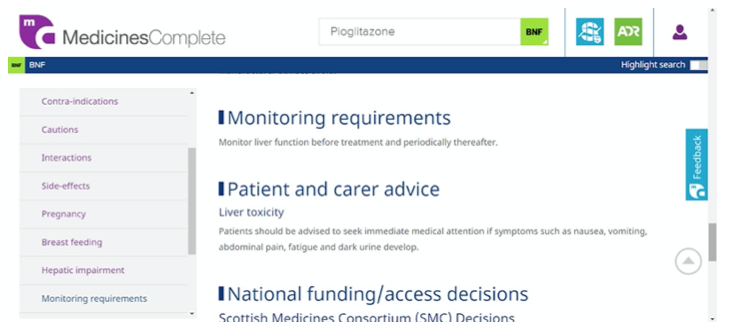Wouldn't It Be Nice If There Was An Easy To Use Resource To Avoid Medication Monitoring Errors?
Medication reviews are often a bit of a breather during a session. A lot of the time it can be really straight forward, particularly if the patient is generally fit and is only on a single blood pressure tablet.
But increasingly more patients are presenting with multi-morbidity and are on a myriad of different drugs such as immunosuppresants, direct (or is it "novel"?) oral anticoagulants and antipsychotics etc.
The Problem
I've often found myself pouring through guidelines in the middle of a consultation to figure out if everything that my patient needs is up to date. It can be really frustrating!
"Does he need an ECG?"
"How often does a lipid profile need to be done again?"
"Didn't I hear something somewhere about Amiodarone requiring annual eye checks??!!"
Not only was it frustrating simply not being able to recollect all the different monitoring requirements, but as a GP Partner I was becoming increasingly concerned about possible complaints and litigation for medication errors. After all NHS Digital figures suggest that there is a year-on-year 10% increase in complaints against GPs and 30% of these complaints are for medication errors.
The Solution
So I wanted to make a simple list of medications which would display all monitoring requirements for a given drug.
I also wanted to ensure that it was designed so that information could easily be looked up and read during a consultation.
I started to collect some data on which drugs I would like this list to cover and I started to look through a bunch of different resources.
Resources
There are some excellent resources out there which have helped me put the list together. But during the data collection I couldn't help but wonder why these resources were so poorly made.
In the Leeds area we have an Intranet which is accessible for local healthcare workers. However the search function takes several minutes to retrieve any information and the guidelines are unintelligible during a consultation.
Other resources such as medicinescomplete are excellent in some situations, but at other times they can be found lacking:

Are these really all the monitoring requirements that GPs need to do?
I also came across an excellent resource by the Specialist Pharmacy Service (SPS). This document is specifically for Primary Care in England and has a lot of relevant data. Their work was commissioned by NHS England and should be updated near the end of this year.
But again, the resource they published is not easily accessible. It's just a PDF and not at all easy to navigate through.
Building The Site
Over the course of a week I built a website called Medicine Monitoring.

I wanted to keep the site extremely simple to use and navigate through. So there are essentially only two pages: a home page and a medication page.
Most of the data on the website is from the SPS resource mentioned before, which I used with their permission.
For the tech people out there, the website was built using React JS which is a javascript library. This allows the webpage to load very quickly and what you see on the page gets rendered without having to reload the whole page every time you click on something.
Medications can be searched by class, whether an ECG is needed and of course by medication name.
I was heavily influenced by medicinescomplete. I liked how they always had the same sub sections for each medication. This makes it easier to use and navigate because you kind of know where everything is, even if you've only used their site once.
So I subdivided each medication into easy to read sections at a glance:
- What baseline investigations need to be done before starting a medication
- What to do during stabilisation of a medication
- What to do for long term monitoring
- Then there is a section of notes and references for people who want to get more information.
Here is the page for Pioglitazone from Medicine Monitoring:

Hopefully much easier to digest than other resources! With more references to boot!
What Next?
Within one week of launching the site I have had page visits from the USA, UK, Ireland, Japan, China and Singapore.
I have also used it in my own consultations. One patient who has had a kidney transplant was on tacrolimus. I was able to easily look whether her blood work was being monitored properly. Another patient I saw was on Hydroxychloroquine. I again used the site to ensure I wasn't missing any important monitoring requirements.
When creating the website I also got the idea of creating a small web-app to help calculate the correct dosage of DOACs during medication reviews. I have found that ensuring a patient is on the correct dosage of a DOAC can easily be overlooked when certain patient factors change (such as weight or kidney function), but incorrect dosages can have disastrous consequences. The finished calculator can be found here: DoacDosage.com.
I hope to keep adding more medications to the list. The next class of medication I'm thinking of adding are the contraceptive families.
I also hope to integrate the data from Medicine Monitoring with a separate application that I have been working on called BookYourGP. BookYourGP is an automated recall system for GP surgeries which was developed in my own surgery and will soon be in several other surgeries in the Yorkshire region. Watch this space!
Guest blog by Dr Rakeeb Chowdhury

Founder of BookYourGP, a tool which supports clinicians to automate essential and routine appointments and patient communications. The system reduces administrative work and costs, releasing healthcare professionals time.


